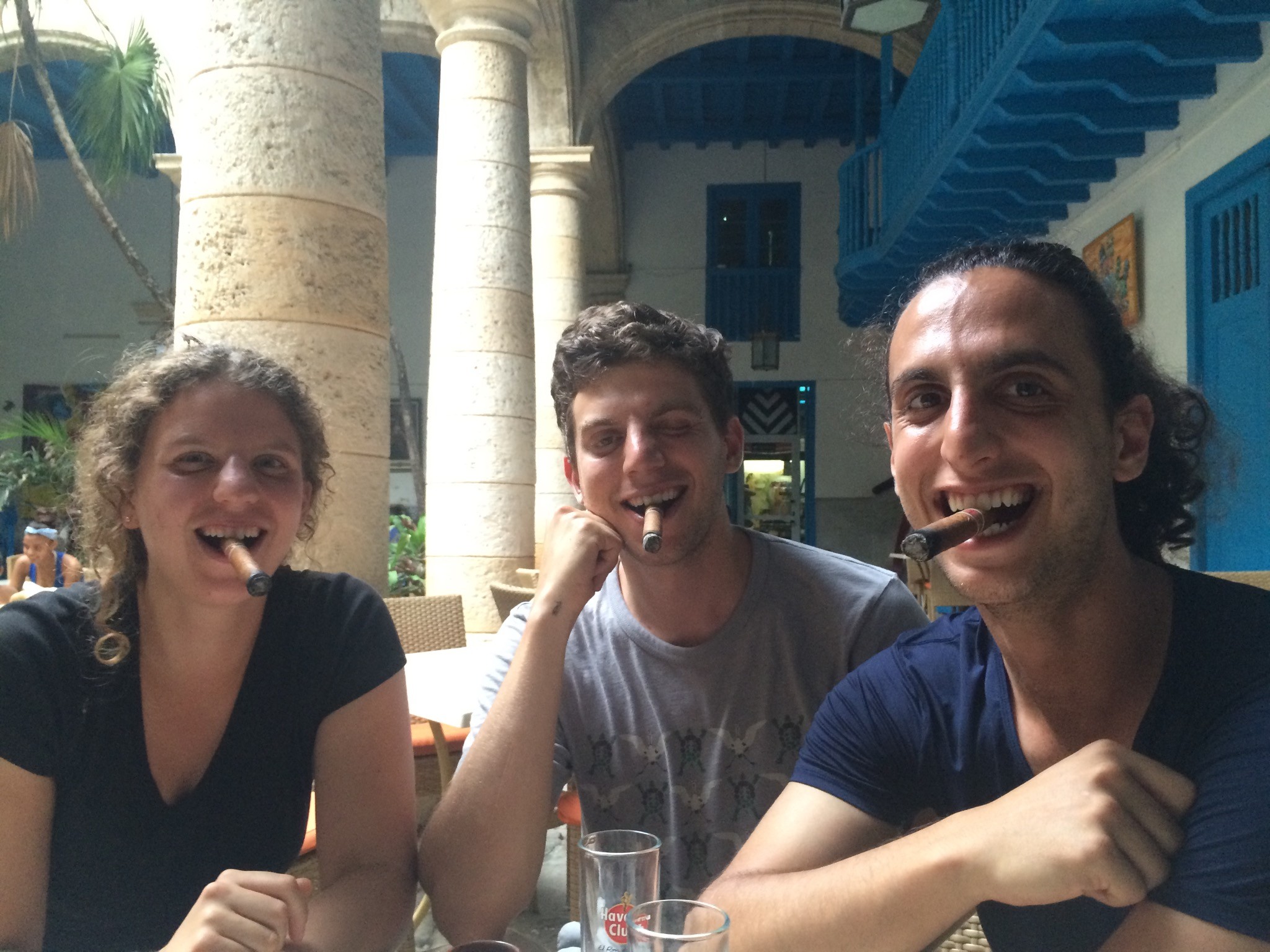Visiting an island nation on the cusp of change
“How was Cuba?” everyone asks. “Fascinating, cannot explain our trip,” I respond.
My family, husband David, and children Nina, Ariel and Rafi, and I bonded for a week with none of our daily distractions. We had virtually no internet or cell phone service, no credit cards or ATMs. We noticed zero advertising, no competition for government brands TuKola soda, Havana Club rum, Bucanero or Cristal beer. Guayaberas, cigars, rum and coffee, art, seafood and tropical fruit are local. The rest is imported.
We encountered contrasts and heard repeatedly that Cuba is complicado. I was so sentimental on my first trip back with my mom, Pola Bradman, in 2008. I viewed things differently now through my children’s objective eyes.
We sweated in 90° and 100 percent humidity. Spectacular thunderstorms don’t cool the air. Long lines patiently await cheap transportation while restored cars from the 1950s hustle for tourist dollars. Palm trees beautify the landscape.
People hang out of apartment windows along with drying laundry. Many sit along the Malecon hoping for a breeze while kids jumped off into the sea. Parents cheered kids playing Little League and talented guitarists strummed outdoors. Beggars abound, yet walking at night feels totally safe.
Signs proclaim the 58th year of Revolucion, and tourists flock to explore this curiosity. American flights will increase from 15 to 90 per day, despite the absence of accommodations and services needed to host the influx. Hotel rooms are overbooked and new construction and renovations await an infusion of money and materials. Crumbling buildings and broken roads are part of the messy infrastructure. Sufficient gas, electricity, water and Wi-Fi are lacking. We almost ran out of diesel while searching for fuel.
We timed our trip to coincide with this cusp of change — viewing today’s Cuba, before neon signs and Starbucks invade. Faded billboards with Communist slogans depict Che Guevara, the Argentine revolutionary. Expanded docks await tourist boats in Varadero and cruise ships spill out passengers. Tourism workers join the 21st century with their cash tips, while others fall behind in the 1960s’ dust.
Friendly locals shared their personal stories. They discuss La Lucha— daily struggles — under Fidel Castro’s rule, referring to him by miming an imagined beard. Everyone remembers hunger during the ‘special period’ years of economic failure between the Soviet collapse and Cuba’s revival of tourism.
However, our guide reminded us of the successes of the revolution; universal literacy, gender and racial equality. Each individual is entitled to state education, rations and medical care. Medical research is lauded and Cuban doctors exported. Music and dance are wonderful and accessible.
Cubans, once afraid of informers, interact openly with foreigners. This allowed for a spontaneous coffee break with a Cuban friend at his family’s home. Abuelo sat in his doorway smoking rationed cigars. His modest house, shared for decades by too many relatives with no privacy, was recently doubled in size by the increased cash earnings of his enterprising tourist guide son. The people revere President Barack Obama. Havana artists portray him as a superhero.
Although the government introduced his inaugural visit through cameos on Panfilo’s television show, Cuban President Raúl Castro denigrated Obama immediately after he departed.
We ate abundantly, while Cubans live on rations. Tobacco production is epic, but the sugar cane fields are ruined. Seniors survive on a pittance while Havana’s youth handle new cell phones. Cubans filled the free Rolling Stones concert and watched a Chanel fashion show on a main boulevard. Private enterprise is the new phenomenon here.
Havana’s language and culture are an indelible part of me. Hopefully the unfolding changes won’t render Cuba unrecognizable. I’m enriched by my visits here but am eternally grateful to my parents for leaving. I hope to experience the new and improved Cuba soon.
This is the last of three stories about Abrahams visit to Cuba.

 66.0°,
Shallow Fog
66.0°,
Shallow Fog 




